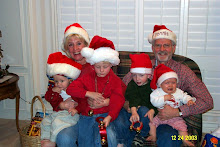I suppose that since man first evolved into a multi-celled
organism and crawled out of the primordial slime, we have always loved
stories. Myths, legends, histories
define us as a culture, and tell us who we are. They are vital because they embody the mystical powers of
mankind. There is a magnetic pull
to a well-told story. It’s a kind
of magic.
Every family should have at least one griot, one sage to
relate the oral histories and tell the stories of the people that populate the
Tribe.
If it is true that your past forms you, I can see why Brodi
became the designated storyteller.
She has always loved books, and began reading at the age of three. Mythology was a particular
favorite. And every night, Dennis
read to the girls.
It’s also true that all writing is, to some extent,
autobiographical. Nothing goes to
waste. All Brodi’s values,
beliefs, experiences, memories, old wounds, and associations become the stuff
of stories.
I, too, love well-told tales. Some of my favorites are those with tight plots that raise
the hair on the arms or send a prickling sensation at the back of the neck,
like the Weird Sisters in “Macbeth.”
Of course, less skilled stories, like vulgar reality shows, become mired
in pointless notoriety. Good
stories don’t just fill the void.
They inspire us as a culture and as individuals. Writing is an art.
Brodi’s saga has magic.
Her book launch is next week. It is the third and final installment of her “Everneath”
trilogy, and it is quite a ride!
Brodi has a gift. She is a
spinner of yarns. A fabulist. A story-teller. Now I’m not saying that just because
I’m her mother. On the
contrary. As her mother, I tend to
give more desiccating critiques than had we not been umbilically bound. I don’t
really know the source of her talent. Perhaps the explanation is simply that
she is a collection of recessive genes.
Who knows?
It’s not easy being a mother under any circumstances. Most of us are profoundly myopic. I, in particular. My emotions can fluctuate from solar
flare to polar vortex in a twinkling. There have even been occasions when I
have channeled my inner Nosferatu.
I guess it goes with the territory. Sometimes motherhood is the ultimate blood sport.
And watching one’s daughter on the night of her book launch
can be a real bowel scourer. At
moments I just sit there, toad-eyed.
At other times, I seem to have 10,000 hexagonal lenses, all in permanent
winces.
Not so with Dennis. He was always amused and delighted by
her charming state of dishevelment.
Now, it isn’t that he thought our daughters could do no wrong. Quite the opposite. Experience taught us that if there was
mischief afoot, our daughters were not only involved…they were the instigators…a
mind-blowing combination of match and gunpowder.
Talk about gluts and deficits. There were times when a day without
police or lawyers at our door was a good day. Our girls were fueled by energy and felonious ingenuity. They didn’t just run…they
rampaged. And there were stages
when every request, rule, requirement was met with resistance.
No, Dennis never thought his
daughters were perfect, but if they could get him laughing, which was not
difficult, they could turn his delight to their advantage. His forbearance for the specifics of
each girl always had a sedative effect on me, and calmed the constantly
shifting topography of my mind.
Being a father is different than
being a mother. I guess it’s the laws of nature, but I think motherhood is the
ultimate impossibility.
I have an amalgam of favorite female
literary characters, who, though fictional, are riveting exemplars of what
women are capable of. Antigone,
the daughter of Oedipus and Jocasta, Odysseus’ wife, the faithful and resourceful
Penelope, Hotspur’s warrior-hearted spouse, Lady Percy, and Grendal’s
protective and vengeful mother from Beowulf, just to name a few. These women are spirited, flawed,
nuanced and powerful. Not exactly
the stuff of “Fascinating Womanhood!” Good characters alter you.
Brodi’s main character, Nikki
Beckett, is high voltage. She is passionate, willful, impulsive, feckless (without
feck), well-intentioned but often ill-advised, and should be saluted for her
courage if not always her judgment.
Brodi sculpts Nikki with a combination of precise language, metaphor and
a certain poetry that makes this creation flawed and authentic. No empty rhetoric. Nikki is a particular favorite. She ranks among the notables.
In spite of Brodi’s efforts at
invisibility, it doesn’t take a Rhodes’ Scholar to intuit the autobiographical
elements. Fictional writing is the
ultimate reveal. Brodi, like
Nikki, would go to hell and back for those she loves…and has.
I guess in the end, each of us is
greater than the sum of our parts.
That’s our salvation.
I’ll be sitting on the front row
Tuesday night, the sum of many parts…and two hearts…because daughter – Family –
trumps everything.
